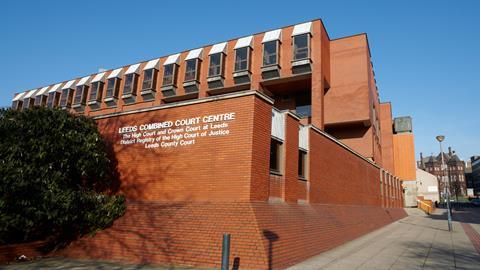A litigant in person who tried to reopen a 19-year-old grievance against legal advisers has been told by the High Court that there is no evidence of any wrongdoing.
Brian Nesbitt had sought summonses relating to his allegations of dishonesty and fraud against a national firm solicitor and a Citizens Advice Bureau employee over an employment claim settled in 2003.
Eleven years passed after District Judge Walton, at Newcastle upon Tyne County Court, dismissed Nesbittt’s claim for professional negligence. But in May last year Nesbitt wrote to the magistrates’ court in Gateshead indicating he wanted to reopen matters, prompting HM Courts & Tribunals Services twice to refuse to issue criminal summonses. Following an application for judicial review of the decisions, Mr Justice Julian Knowles ruled in Nesbitt, R (On the Application Of) v Cleveland, Durham and Northumbria Legal Team that the district judge’s judgment was ‘unchallengeable’ and he was ‘obviously entitled’ to conclude that the CAB adviser and solicitor were honest.
The dispute and subsequent litigation originated when Nesbitt was suspended by his employer Dunlop after being unable to work after suffering a head injury during an assault.
Nesbitt appointed the CAB in Gateshead to act in his claim, and his allotted adviser was Wilfred Holt. Dunlop, represented by Wragge & Co solicitor Juliet Abraham, offered to settle for £9,000.
The High Court heard that, despite rejecting the offer, Nesbitt banked and spent a cheque for £9,000.
Nesbitt later alleged that his claim against Dunlop had been settled without his consent and that the forms confirming the settlement were fraudulent. His allegation went to the Court of Appeal which allowed it to proceed, but it was ultimately unsuccessful. The judge found the evidence ‘overwhelmingly’ suggested that Nesbitt had agreed to a compromise and rejected any case that he was misled.
In the latest hearing, the High Court judge said he allowed Nesbitt to speak for as long as he wished and on any point he wished. But there was no evidence to question the findings that Holt and Abraham were honest, which was fatal to any application for summonses.
He added: 'The claimant is accusing a CAB employee, and a solicitor with a large and reputable firm, of dishonesty. Whilst dishonesty by professionals is not unknown, it seems to me right to observe that very cogent evidence would be required even at the stage of applying for summonses. There is no reason that is obvious to me why Mr Holt or Ms Abraham should have behaved in a dishonest fashion on what probably was, for them, a low value and routine matter, and from which they did not personally stand to benefit.'
As a postscript, Knowles said that he sent the judgment out in draft for correction of grammatical or typing errors. Nesbitt responded with several pages disputing his findings and accusing judges who have considered his cases over the past 19 years.



























